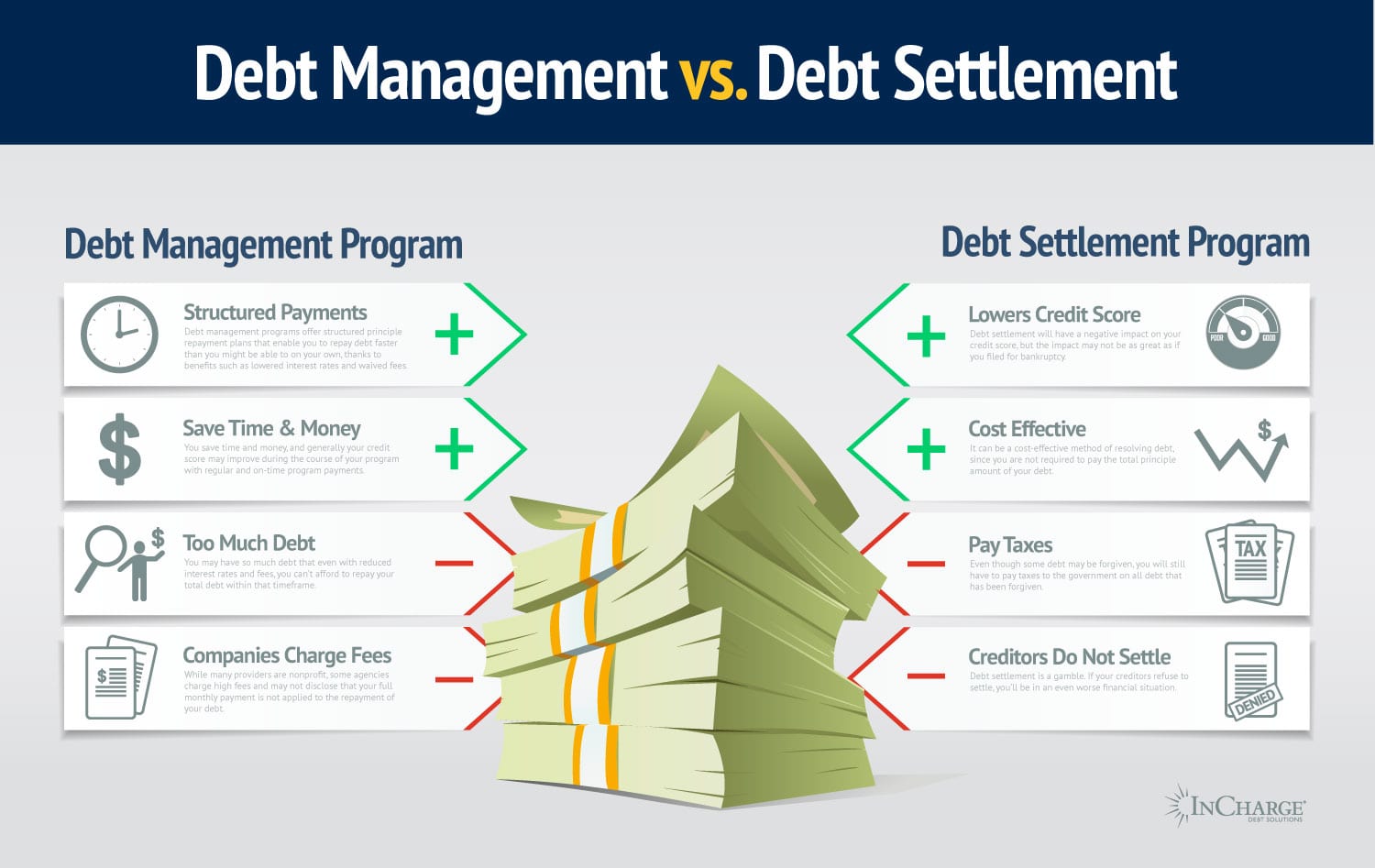Recognizing the Refine of Financial Debt Loan Consolidation: More Discussion Posted Here
Recognizing the Refine of Financial Debt Loan Consolidation: More Discussion Posted Here
Blog Article
Whatever You Need to Understand About Creating an Individualized Financial Obligation Monitoring Plan
In the world of personal money, devising a tailored financial debt monitoring plan is frequently the keystone of accomplishing financial stability and tranquility of mind. As you navigate the intricacies of producing a tailored financial debt management strategy, recognizing the ins and outs of each action is crucial to your financial success.
Analyzing Your Current Financial Debt Scenario
One have to initially perform a thorough evaluation of their present debt obligations before creating an efficient financial debt administration strategy. Examining your present debt situation is a critical very first action in acquiring control of your funds. Begin by collecting all essential financial records, such as bank card declarations, loan contracts, and any type of impressive bills. Develop a breakdown of each financial obligation, consisting of the overall quantity owed, interest rates, minimal month-to-month repayments, and due days. This extensive overview will offer a clear image of your economic standing and assistance focus on which debts to deal with first.
After compiling this info, determine your overall debt-to-income proportion by separating your regular monthly financial obligation payments by your monthly earnings. Comprehending these facets of your economic circumstance will lead you in developing a customized financial obligation management strategy tailored to your particular requirements and goals.
Setup Financial Goals and Targets

When establishing monetary objectives, it's vital to be details, quantifiable, possible, appropriate, and time-bound (WISE) For instance, you could establish an objective to repay a particular amount of debt within a particular time framework, such as reducing your charge card equilibrium by $5,000 in the next one year - More Discussion Posted Here. By setting clear targets similar to this, you can track your development and remain motivated to achieve your debt administration objectives
Furthermore, think about prioritizing your debts based on aspects such as rate of interest, superior equilibriums, and settlement terms. By concentrating on high-interest financial obligations first, you can save cash in the future and accelerate your journey toward economic liberty. Keep in mind, each person's monetary scenario is special, so customize your objectives and targets to fit your specific demands and scenarios.
Producing a Realistic Spending Plan
Crafting a distinct budget is an essential action in effective financial debt management and monetary planning. A sensible budget serves as a roadmap for your financial health and wellness, assisting you track your revenue, expenses, and financial obligation settlements. To create a functional spending plan, beginning by providing all your sources of revenue. This includes your income, side rush profits, or any type of various other monetary inflows. Next, brochure all your repaired costs such as lease or mortgage, utilities, insurance, and financing settlements. Variable expenses like grocery stores, entertainment, and transportation ought to additionally be consisted of. Distinguish between demands and wants to focus on necessary costs and determine areas where you can reduce.
When setting budget limitations, be straightforward with yourself about your investing behaviors and financial commitments. Allocate a section of your revenue in the direction of repaying debt while ensuring you have some funds for cost savings and emergency situations. Regularly testimonial and change your budget as required to remain on track with your economic objectives and debt settlement plan. By sticking to a reasonable budget plan, you can efficiently handle your financial obligation and job in the direction of a more secure monetary future.
Discovering Financial Obligation Payment Strategies
After establishing a sensible budget plan, the next essential action in efficient debt management is to check out numerous debt payment strategies. One typical approach is the snowball method, where you concentrate on repaying the tiniest financial obligations first while making minimal repayments on bigger debts. This approach can assist develop momentum as you see smaller sized financial obligations being cleared, providing inspiration to take on bigger ones.
Another method is the avalanche approach, which entails focusing on debts with the highest possible interest rates. By targeting high-interest debts first, you can decrease the general amount you pay in interest with time. This approach might be extra affordable over time, also though it could take longer to see private debts completely settled.
Debt debt consolidation is another option where you combine numerous financial debts right into a solitary funding with a reduced passion price. This can simplify your payment process and potentially reduce the overall rate important site of interest paid. Nonetheless, it's necessary to very carefully consider the terms and costs connected with combination to ensure it's the ideal option for your financial scenario.
Monitoring and Adjusting Your Plan

Readjusting your plan might include reapportioning funds to tackle high-interest financial obligations initially, bargaining with lenders for reduced rate of interest or better payment terms, or discovering added revenue sources to accelerate debt repayment. As your financial circumstance advances, your debt administration plan need Discover More to adapt appropriately to stay reliable. By staying proactive and adaptable in surveillance and changing your strategy, you can optimize your efforts in the direction of repaying your financial debts effectively and attaining your economic objectives.
Final Thought
In final thought, developing an individualized debt administration plan includes evaluating current debt, establishing monetary goals, developing a reasonable spending plan, exploring payment strategies, and monitoring and readjusting the plan as required. By complying with these actions, people can take control of their monetary situation and job in the direction of ending up being debt-free. It is necessary to stay disciplined and committed to the strategy in order to accomplish long-term financial security.
One should first conduct a comprehensive examination of their existing financial obligation obligations before developing an effective financial obligation management strategy.After developing a realistic budget plan, the following essential step in effective debt monitoring is to check out various financial debt payment strategies - More Discussion Posted Here.To successfully manage your debt, continual tracking and adjustment of your financial debt administration strategy are essential parts for long-lasting financial security.Changing your plan might involve reapportioning funds to take on high-interest financial debts first, bargaining with financial institutions for lower passion prices or better payment terms, or exploring extra earnings sources to accelerate financial debt repayment.In conclusion, developing a customized debt monitoring more info here strategy involves assessing existing financial obligation, establishing financial goals, producing a reasonable budget plan, discovering repayment techniques, and tracking and adjusting the plan as needed
Report this page